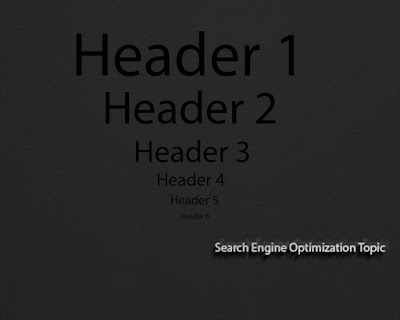H1-H6: Page Headings
I can't locate any authoritative evidence online that says you have to utilize Heading Tags (H1, H2, H3, H4, H5, H6) or that they enhance rankings in Google, and I have seen pages do well in Google without them – however I do utilize them, particularly the H1 tag on the page.
For me, it's another bit of an "impeccable" page, in the conventional sense, and I attempt to assemble a site for Google and people.
<h1>This is a page title</h1>
I still by and large just utilize one <h1> heading tag in my catchphrase focused on pages – I trust this is the way the W3C expected it to be utilized as a part of HTML4 – and I guarantee they are at the highest point of a page above important page message and composed with my fundamental watchwords or related catchphrase phrases fused.
I have never encountered any issues utilizing CSS to control the presence of the heading labels making them bigger or littler.
You can utilize numerous H1s in HTML5, however, most locales I discover I take a shot at still utilize HTML4.
I use the same number of H2 – H6 as is important relying upon the span of the page, however, I utilize H1, H2, and H3. You can see here how to utilize header labels appropriately (fundamentally, simply be reliable, whatever you do, to give your clients the best client encounter).
What number of words in the H1 Tag? However, many as I believe is sensible – as short and smart as could be allowed for the most part.
I likewise found Google will utilize your Header labels as page titles at some level if your title component is twisted.
As dependably make certain to make your heading labels exceedingly significant to the substance on that page and not very spammy, either.












No comments:
Post a Comment
Thanks for commenting my post